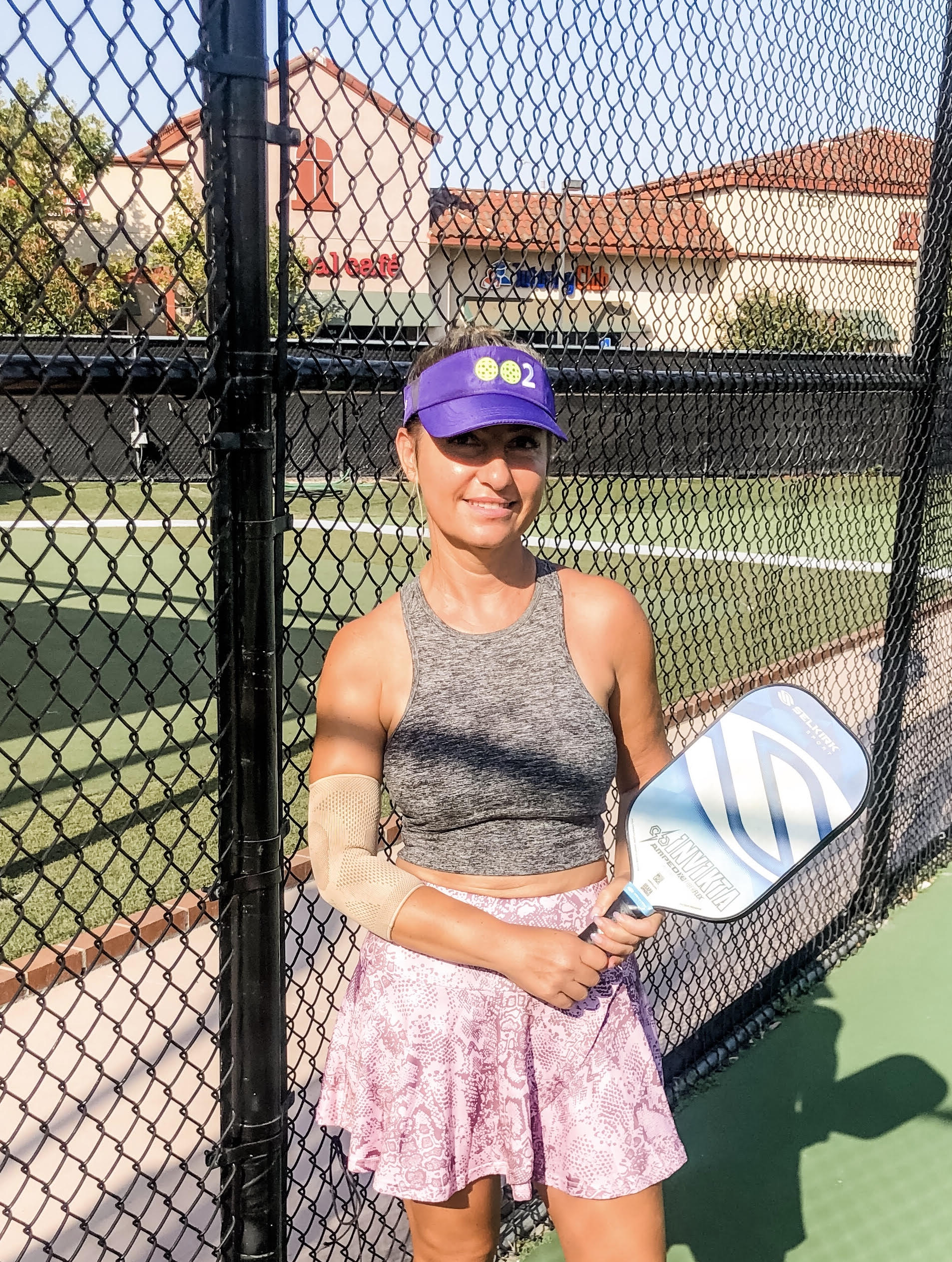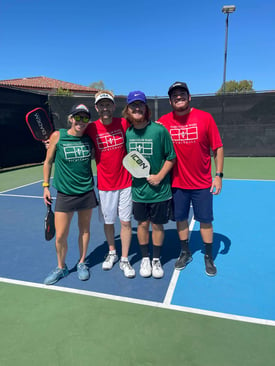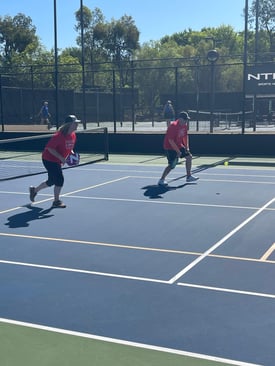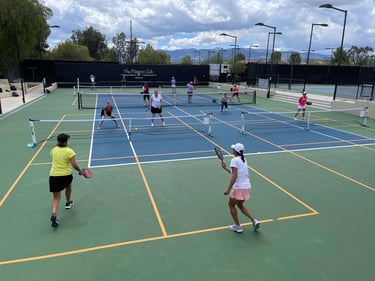
We know pickleball is fun to play, not too hard to learn, and a great way to meet other local players. But did you know that playing pickleball can actually improve your mental health?
Pickleball is the fastest-growing sport in the US — so much so that county parks and private clubs are simply racing to set up enough courts for the demand. Games, leagues, and tournaments are gaining momentum far and wide.
The Paseo Club is no different. The Paseo Club was built in 2004, and in 2019 we put in the first pickleball courts. Since then, we have led the way in all things pickleball in the Santa Clarita Valley, creating an all-inclusive pickleball department.
The Paseo Club is a social club that supports members in both physical and emotional/mental wellness. That is why we are so excited to share this fascinating new research with you.
In this article, you will learn what depression is, how all physical activity helps boost mental health, why pickleball alleviates depression, and how to start playing pickleball at the Paseo Club.
.jpg?width=375&height=250&name=pexels-cottonbro-studio-7243785%20(1).jpg) What is depression?
What is depression?
Depression is often associated with sadness. This is correct, but the second most common experience of depression is apathy.
The American Psychiatric Association defines depression as “a common and serious medical illness that negatively affects how you feel, the way you think, and how you act. Depression causes feelings of sadness and/or a loss of interest in activities you once enjoyed. It can lead to a variety of emotional and physical problems and decrease your ability to function at work and home.”
Common symptoms include:
- Feeling sad
- Feeling worthless or guilty
- Thoughts of death or suicide
- Slowed movements or speech
- Loss of energy and increased fatigue
- Trouble sleeping or sleeping too much
- Loss of interest or pleasure in activities once enjoyed
- Difficulty thinking, concentrating, or making decisions
- Changes in appetite — weight loss or gain unrelated to dieting
- Increase in purposeless physical activity (e.g., inability to sit still, pacing, handwringing)
 How physical activity boost mental health
How physical activity boost mental health
For some time, it has been known that exercise is essential for maintaining physical health. It improves heart health and lowers the chance of diabetes, chronic disease, inflammation, and many other maladies.
What is more newly understood is that we also need to move so that we can not only feel good in our bodies but also in our hearts and minds.
Physical activity changes our chemistry.
- Exercise causes a rise in core body temperature, increasing the temperature of specific brain regions, such as the brain stem, leading to an overall feeling of relaxation and reduction in muscular tension.
- Exercise increases the secretion of the three major neurotransmitters — serotonin, dopamine, and norepinephrine. This is related to a positive mood and an overall enhanced sense of well-being.
- Increases neurogenesis which generates new neurons in our brains. This process is associated with learning new things and having new feelings and perspectives.
Another theory about how exercise helps us feel good is that it simply distracts us from our worries. And that, as we know, is a welcome relief!
 How pickleball helps to alleviate depression
How pickleball helps to alleviate depression
The most recent research regarding pickleball and lowering depression stems from a study conducted by the Apple Heart and Movement Study that studied more than 200,000 participants across the United States.
People in the study were offered an optional mental health survey that included a depression screening tool called the Patient Health Questionnaire (PHQ-2). The results indicate that depressed moods were 60.1 percent lower among frequent pickleball players than in the general participant pool.
Some theories about why pickleball reduces rates of depression:
- Playing pickleball outdoors may increase exposure to natural daylight. And the more natural light we receive, the better our sleep quality, activity levels, and overall quality of life are.
- Pickleball requires people to pay attention and think quickly and strategically. Physical activities that require strategic thinking improve cognitive function. This promotes better memory and processing speed and can help decrease stress and anxiety.
- Pickleball is one of the most social sports. Whether you play with your newfound partner, meet opponents during a tournament, or hang out at the courts waiting for your turn, picklers are known for being friendly, welcoming, and excited to share their love of the sport. Social engagement lowers stress, depression, and anxiety and increases an overall sense of well-being.
 How to get involved in playing pickleball at the Paseo Club
How to get involved in playing pickleball at the Paseo Club
The Paseo Club has a top-notch, comprehensive pickleball department. There are 11 pickleball courts available for drop-in and reserved play, drills, leagues, and tournaments.
There are three options to learn to play pickleball or improve your skills at the Paseo Club.
- Sign up for personal instruction for one-on-one guidance.
- Join a drill — the club’s starter class is a great option for beginners.
- Meet other beginner players and reserve a court together to practice.
To keep your life active and social, check out the fitness, tennis, and swimming options at the Paseo Club. There are many ways to make friends and be fit.
Don’t forget to take some time to rest and relax. Enjoy the sauna, spa, and cafe. These amenities help our members experience the Paseo Club a home away from home.
Would you like to learn more about membership? Schedule a tour of the Paseo Club. You can check out our courts, gym, fitness and Pilates studios, and much more! We welcome your questions and look forward to seeing you soon!
Jen Azevedo is a tennis professional, pickleball professional, personal trainer, group exercise instructor, and the general manager of the Paseo Club. She loves the community at the Paseo Club and that it is also a safe and fun place for her daughter. Jen’s favorite activities are joining her tribe for trail races or her partners for tennis matches. Occasionally Jen slows down to relax with a book — she reads over 100 a year!
Topics:

